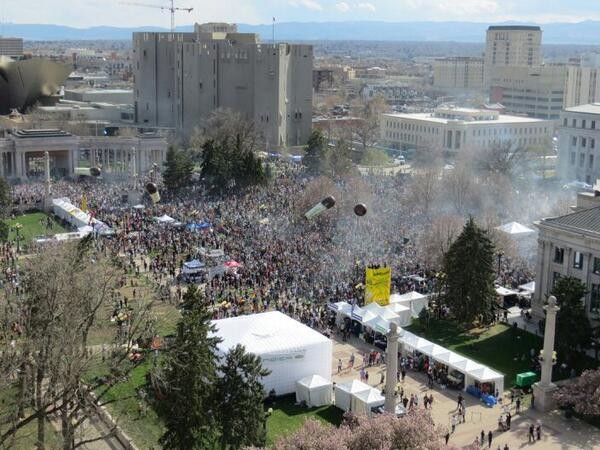Denver, the Mile High City, has seen a spike in tourists booking flights and hotels as it prepares for the annual "420" celebration. In part April 20 celebrates marijuana becoming legal in Colorado in 2014.
April 20 has become a red later day for marijuana smokers primarily in North America. Some events on that day promote the legalization of cannabis.
Last year was Denver's first 420 celebration. Even though it occurred on Easter Sunday, tens of thousands of tourists helped to create a cloud of marijuana smoke above the city.
Tyler Hanson, data analyst for the travel site Hopper.com, shares that there has been a 36 percent spike in searches for airline tickets to Denver next weekend. This figure is interesting the ski peak season has ended, according to HNGN.
Many people wrongly assume that 420 is celebrating the birthday of dictator Adolf Hitler. Another theory is that it represents the numbers multiplied in musician Bob Dylan's song "Rainy Day Women #12 & 35."
A 25-year-old experience of Steven Bloom, an ex-reporter of the marijuana magazine "High Times" helps to explain the term's origins.
Bloom was in a parking lot waiting for a Grateful Dead concert in 1990. A "Deadhead" fan of the band gave Bloom a flyer, inviting him to meet at "4:20 on 4/120" for the activity of "420-ing."
The flyer even explained the alleged history of 420. In the late 1970s, "420" was the police code in San Rafael, California that indicated Marijuana Smoking in Progress.
In turns out the flyer was only partially correct. A group of five friends from San Rafael High School referred to themselves as the Waldos.
The Waldos were named after their favorite place to hang out, which was a wall outside their school. The group coined the term "420" in 1971 as a type of codeword that had several meanings related to marijuana smoking, according to Huffington Post.
Colorado Amendment 64 was a measure to amend the state's constitution, giving it the same legal status as alcohol. It became an "electoral first" in the United States and the world.



























